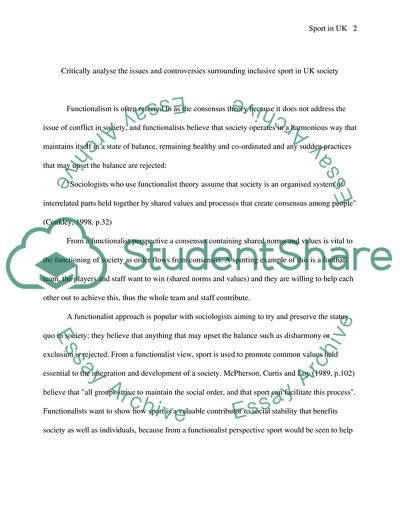Cite this document
(Critically Analyse the Issues and Controversies Surrounding Inclusive Term Paper, n.d.)
Critically Analyse the Issues and Controversies Surrounding Inclusive Term Paper. Retrieved from https://studentshare.org/sports-and-recreation/1707514-critically-analyse-the-issues-and-controversies-surrounding-inclusive-sport-in-uk-society
Critically Analyse the Issues and Controversies Surrounding Inclusive Term Paper. Retrieved from https://studentshare.org/sports-and-recreation/1707514-critically-analyse-the-issues-and-controversies-surrounding-inclusive-sport-in-uk-society
(Critically Analyse the Issues and Controversies Surrounding Inclusive Term Paper)
Critically Analyse the Issues and Controversies Surrounding Inclusive Term Paper. https://studentshare.org/sports-and-recreation/1707514-critically-analyse-the-issues-and-controversies-surrounding-inclusive-sport-in-uk-society.
Critically Analyse the Issues and Controversies Surrounding Inclusive Term Paper. https://studentshare.org/sports-and-recreation/1707514-critically-analyse-the-issues-and-controversies-surrounding-inclusive-sport-in-uk-society.
“Critically Analyse the Issues and Controversies Surrounding Inclusive Term Paper”, n.d. https://studentshare.org/sports-and-recreation/1707514-critically-analyse-the-issues-and-controversies-surrounding-inclusive-sport-in-uk-society.


